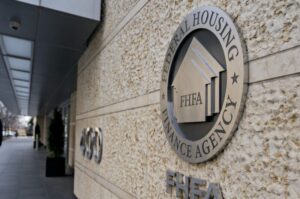


Last week, the House Financial Services Committee and Senate Banking Committee convened for the Consumer Financial Protection Bureau’s (CFPB) semi-annual report to Congress. CFPB Director Rohit Chopra testified in both chambers about the bureau’s initiatives.
Chopra, Democrats, and Republicans seem to agree that action is needed on mortgage trigger-lead practices and cracking down on financial fraud. Democrats praised the recent U.S. Supreme Court ruling that upholds the CFPB’s funding structure. Currently, the CFPB receives funding through the Federal Reserve, which transfers earnings to the bureau.
Republicans searched for clarification on why the CFPB is entitled to funding when the Federal Reserve has been running on a net deficit.
Questions from CA and NV Members of Congress and Senators
The following were questions from members of Congress in California and Nevada:
Major Themes During CFPB Hearing Before Congress
During the hearing, members of Congress and senators spoke on a variety of issues. These were the most notable for credit union leaders to consider:
On several occasions, Chopra noted that smaller institutions, like credit unions, are exempt from certain rulemaking. The California and Nevada Credit Union Leagues will continue to advocate for policies that create an even playing field for credit unions.
2855 East Guasti Rd., Suite 202
Ontario, CA 91761
909.212.6000
1201 K. St., Suite 1050
Sacramento, CA 95814-3992
916.325.1360
c/o Great Basin FCU
9770 South Virginia Street
Reno, NV 89511-5941
202.638.5777 www.cuna.org
www.dfpi.ca.gov
Clothilde “Cloey” V. Hewlett — 415.263.8500
fid.state.nv.us
702.486.4120 (Las Vegas)
775.684.2970 (Carson City)